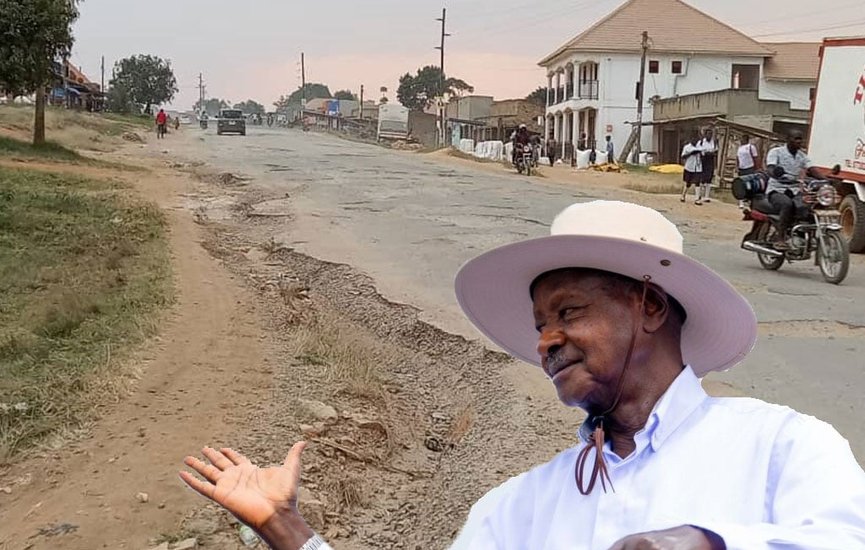President Yoweri Museveni recently lamented the poor state of Uganda’s national trunk roads, blaming “people” who, he claimed, failed to grasp the ideology of the ruling NRM. Yet his remarks raised eyebrows: he often speaks as though a detached observer rather than the chief executive who has presided over government for nearly four decades. While quick to celebrate successes, he is equally quick to shift blame for failures.
In 2016, Museveni went into elections with a strong record on road infrastructure. Major highways linking Kampala to the country’s borders Busia, Malaba, Nimule, Katuna, and others were in good condition. District roads were also serviceable, and rural gravel roads were largely passable. Kampala was an exception, where poor road conditions persisted and worsened over time.
Fast forward to today, and the picture is grim. Key highways such as Kampala–Fort Portal, Kasese–Bwera, Karuma–Arua, Soroti–Lira, and Masaka–Mutukula have deteriorated badly. Even once-reliable routes like Mbarara–Ibanda and Ntungamo–Rukungiri are falling apart. While some new roads have been built, they do not offset the faster collapse of older ones. Parliament itself has voiced alarm, questioning where funds allocated for road maintenance have gone.
The turning point came in 2008, when Museveni created the Uganda National Roads Authority (UNRA) and the Road Fund. With boosted budgets, road conditions improved significantly between 2008 and 2015. But cracks began to show after Museveni’s fallout with Allen Kagina, then UNRA head, and subsequent reforms pushed by his brother, Gen. Salim Saleh, to merge agencies back into parent ministries. The reforms dragged on, starving UNRA of funds and paralyzing maintenance. Staff morale collapsed, and the network deteriorated.
Politics worsened the problem. Building new roads brings more political mileage than maintaining existing ones, so resources overwhelmingly favored new projects. Year after year, maintenance budgets were neglected 90% of funding went to new roads, just 10% to maintenance. This shortsightedness is costly: the World Bank once estimated that Africa wasted billions in reconstruction costs that could have been avoided with timely upkeep. Uganda is repeating the same mistake decades later.
The irony is that roads are among the most politically sensitive services. Every citizen uses them daily, and bad roads fuel public anger more than failures in education or healthcare. That Museveni’s government has allowed infrastructure to crumble despite the political risks speaks to deeper governance issues.
Uganda’s roads crisis is not just about asphalt and potholes it is about accountability, planning, and political will. Without a shift from showpiece projects to sustainable maintenance, the country risks undoing decades of progress and entrenching the very failures the president now laments.
